Lisa and I went to the Atomic Testing Museum in Las Vegas today. We were not allowed to take pictures! However, we were inspired to post about the word “atomic.” Below are some pictures related to the U.S. bombing of Nagasaki during WWII. They are followed by some examples of the way in which the word “atomic” has been taken up in popular culture
The mushroom cloud over Nagasaki, Japan:
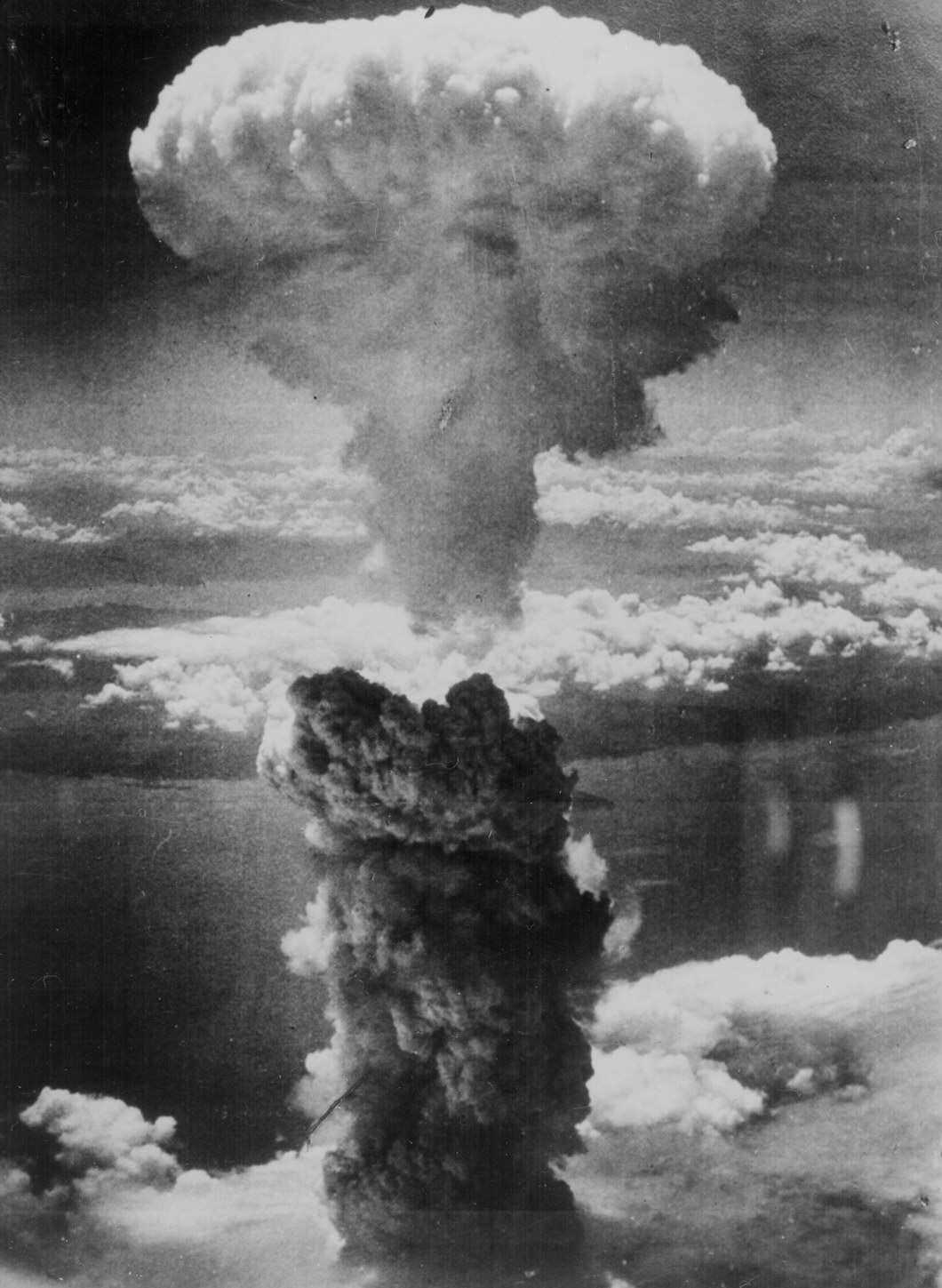
Nagasaki before and after the U.S. dropped an atomic bomb (found here):
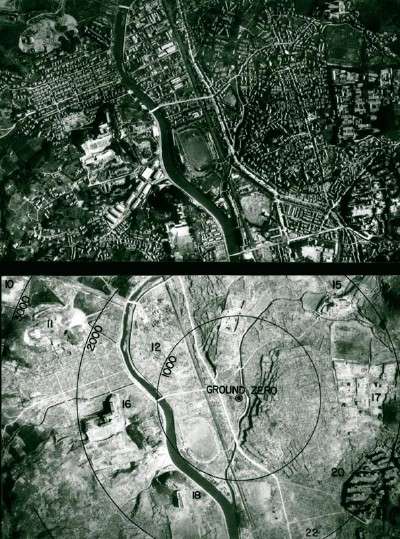
Together the bombs dropped by the U.S. on Nagasaki and Hiroshima killed between 150,000 and 220,000 people immediately (that is, not considering the long-term morbidity and mortality). For more on the science of atomic bombs and the structural and human casualties of the Hiroshima and Nagasaki bombings, click here. Our point here is to point out that at this point in history, the word “atomic” referred to something incredibly devastating to human life.
Given this, we find it fascinating that the word came to mean something like “cool,” “super extra much,” “hot and spicy” and numerous other vague references to awesomeness. Then, the adjective could be used to describe anything at all. Consider the following examples
Clothes and sporting equipment:
Music-related stuff:
Candy:
So at some time and for some reason, the word “atomic” came to refer not to something very, very serious and instead to something very, very fun. How odd. We did a search for the etymology of the word “atomic” and there was nothing to explain how the word came to be used that way in popular American culture. In fact, there was no reference to its non-scientific use at all.
P.S. – If you’re ever in Las Vegas and want to see something very, very weird (sociologically, we mean), we suggest the Atomic Testing Museum. There, you can learn about America’s proud “atomic testing heritage.”
UPDATE: Commenter Elena pointed out that before the creation of the atomic bomb, people thought radiation promoted health. An ad for a radioactive “solar pad,” basically a radioactive belt people were supposed to wear:
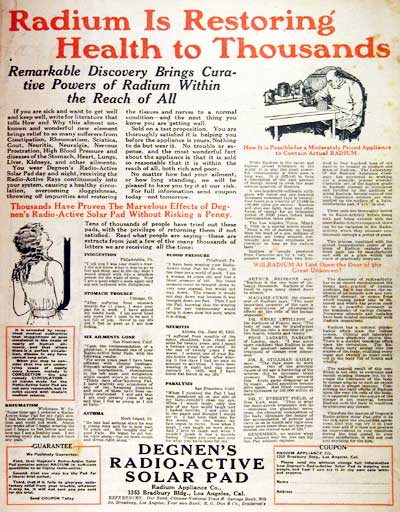
Found here.
A radium water filter:
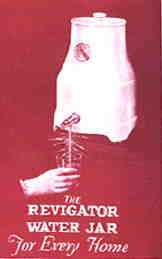
Found here.
It seems odd to me that after the devastation the atomic bombs caused in Japan, the word “atomic” and atomic materials such as uranium retained any positive connotations in the public realm.
Gwen Sharp is an associate professor of sociology at Nevada State College. You can follow her on Twitter at @gwensharpnv.

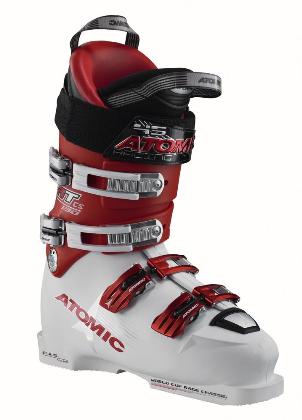

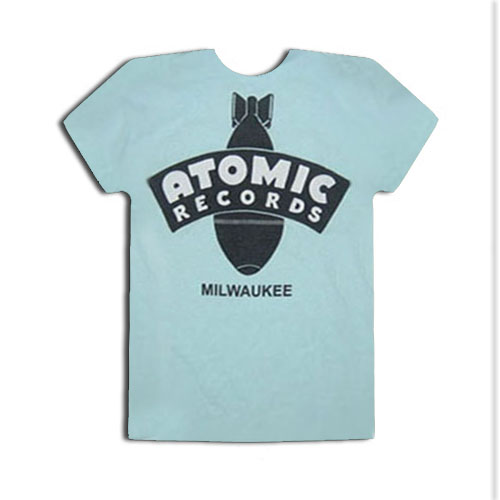
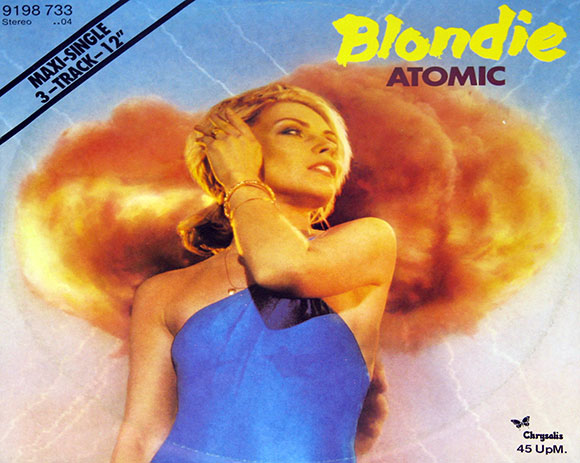
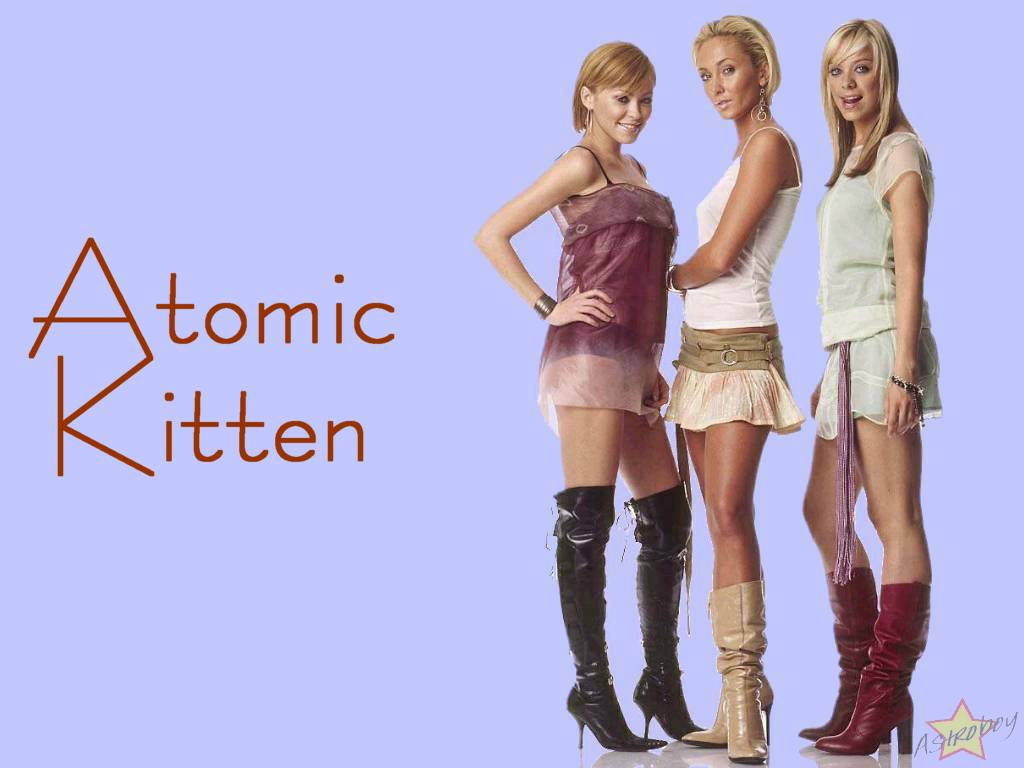
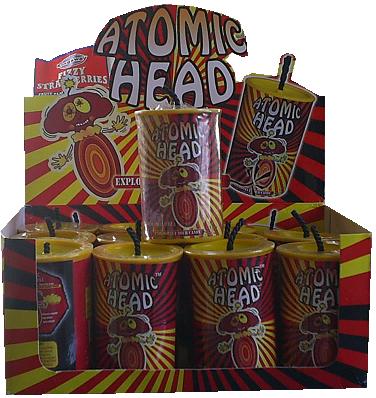

Comments 15
Vivek — May 29, 2008
How about this one?
http://en.wikipedia.org/wiki/Image:Miss_Atomic_Bomb_1957.jpg
Jeff Sanceri — May 29, 2008
Actually, I think the word "atomic" was originally fun and *then* turned into something serious, especially in the aftermath of the very real destruction of Hiroshima and Nagasaki. If I remember correctly, the design of the atomic bomb was something of a nationalistic celebration in the United States, of the triumph of science, specifically "American" science, or at the very least the triumph of the United States over the Soviet Union. To be "atomic" in that age points to power-- you'll notice that the materials contemporary to the period posted above make you think of words like fun, reliable, and powerful. In contrast, you'll notice that the more recent uses of the word atomic point to something that is (still) powerful, but connotes destruction and overkill as well ("atomic fireballs", or check out the graphic on "atomic head" candies). So I would bet that the use of the word atomic went through three distinct stages: before Hiroshima and Nagasaki, when it was fun, reliable, and powerful; the aftermath of the bomb and the very real destruction of human life and property on a scale that no one was prepared for; and then the most recent post cold war uses that appropriate the destructive properties of the the atomic bomb to advertise the power of a product to consumers (again, from a safe, post-cold war distance, where few people if any live in fear of an all out nuclear war).
Elena — May 29, 2008
Shortly after the discovery of radioactivity, there was a fad to use radioactive materials for cosmetic or health purposes.
http://www.popsci.com/scitech/article/2004-08/healthy-glow-drink-radiation
Radium solar pad ad: http://www.adclassix.com/ads2/29radium.htm
Radium water dispenser: http://www.museumofquackery.com/devices/revig.htm
http://www.theodoregray.com/PeriodicTable/Files/Revigator.pdf (original pamphlet)
There was also a widespread use of uranium for tablewares: http://en.wikipedia.org/wiki/Uranium_glass
Gwen Sharp, PhD — May 29, 2008
Don't worry, Vivek--we've got a post coming on Miss Atomic Bomb!
CookieMonster — May 30, 2008
While I think using the atom bomb is an abomination (pun intended), you have to remember that it ended the War and brought back the American troops. If the war had just ended and I had not seen photos of the destruction or heard firsthand accounts of it, I might have viewed the atom bomb in a positive manner too! After all, without the kind of media and (minimal) cultural understanding we have today, World War II seems to have been viewed as a good guys vs. bad guys conflict, and killing the faceless "Japs" might not have seemed as important as bringing the troops, many of whom might have been friends and family members.
Munchkin! « Jen’s Blog — May 31, 2008
[...] A picture of Nagasaki, before and after the bomb [...]
Village Idiot — June 2, 2008
CookieMonster,
It's patently false that dropping either atomic bomb ended the war, but that idea is one of America's Sacred Cows so it's not discussed much. Japan had been trying to surrender for about six months prior to Hiroshima but phone calls weren't being answered, so to speak. It's clear what the US gained by the spectacle(s), but even accepting the premise that "the" hydrogen bomb ended the war still doesn't explain Nagasaki (there were two you may recall; it wasn't an "it" it was a "they" that didn't end the war).
Kurt Vonnegut jr. said this once during an interview: "The most racist, nastiest act by this country, after human slavery, was the bombing of Nagasaki. Not of Hiroshima, which might have had some military significance. But Nagasaki was purely blowing away yellow men, women, and children. I’m glad I’m not a scientist because I’d feel so guilty now."
Anyhow, I'm curious how the word "Atomic" plays in Japan, if it had differing connotations over time as well, etc. I'd guess it goes over a little differently there, and that there aren't any "Atomic Fireballs" for sale in candy stores, unless they are Punk candy stores of course.
[Irrelevant Note: People think Mr. Vonnegut is pretty smart, so I used his words instead of mine since I'm just some random idiot. I'm also fairly sure he meant no offense to biologists and such.]
Anonymous — June 7, 2008
"Atomic" also refers to the era, post-WWII when atomic energy was the new, big thing (in regards to the "Atomic Ranch" and "Atomic Cocktails" pictures).
Sociological Images » WAR AS SEXUAL DOMINATION — June 14, 2008
[...] I want to give a shout-out to Vivek who mentioned Merlin in response to our previous post on the Atomic Testing Museum. [...]
Ben Zvan — January 6, 2009
Whenever I need to dispose of large quantities of stuff around the house I call Atomic Waste. Because who doesn't want an Atomic Waste disposal unit parked outside their house?
http://www.atomicrecycling.com/
Anonymous — March 12, 2009
I always believed that Atomic in certain senses, certainly in the home decorating and record company above, referred to the 'Atomic Age' or the 1950s. In this sense it seems like an ironic usage of the word.
As for atomic used in candy and drinks, I believe it refers to the impact the item is supposed to have. Obviously trivializing.
The Invention Of The Bikini » Sociological Images — August 28, 2009
[...] test at Bikini Atoll. Louis Réard, to whom the invention of the bikini is credited, followed the nuclear-loving fashion of the day. He named it after the location, hoping that “his invention would be as explosive as that [...]
Optimism About Atomic Energy » Sociological Images — October 7, 2009
[...] that a mushroom cloud can have a “silver lining” reminds me of our posts on the evolution of the word “atomic” and Miss Atomic Bomb [...]
Juli — March 20, 2010
Wow, I thought USA was supposed to feel guilty after bombing Japan TWICE, not to have candy with the name plus the drawing of some character with the mushroom cloud as a head! This is overwhelmingly disrespectful!!!
Survey Finds Different Levels of Acceptance for “Gays” Versus “Homosexuals” » Sociological Images — April 22, 2010
[...] in words: frankenfoods, atomic, soda vs. pop, tradition, hispanic, feminism, woman, average, nurse, George Lakoff on metaphor, [...]